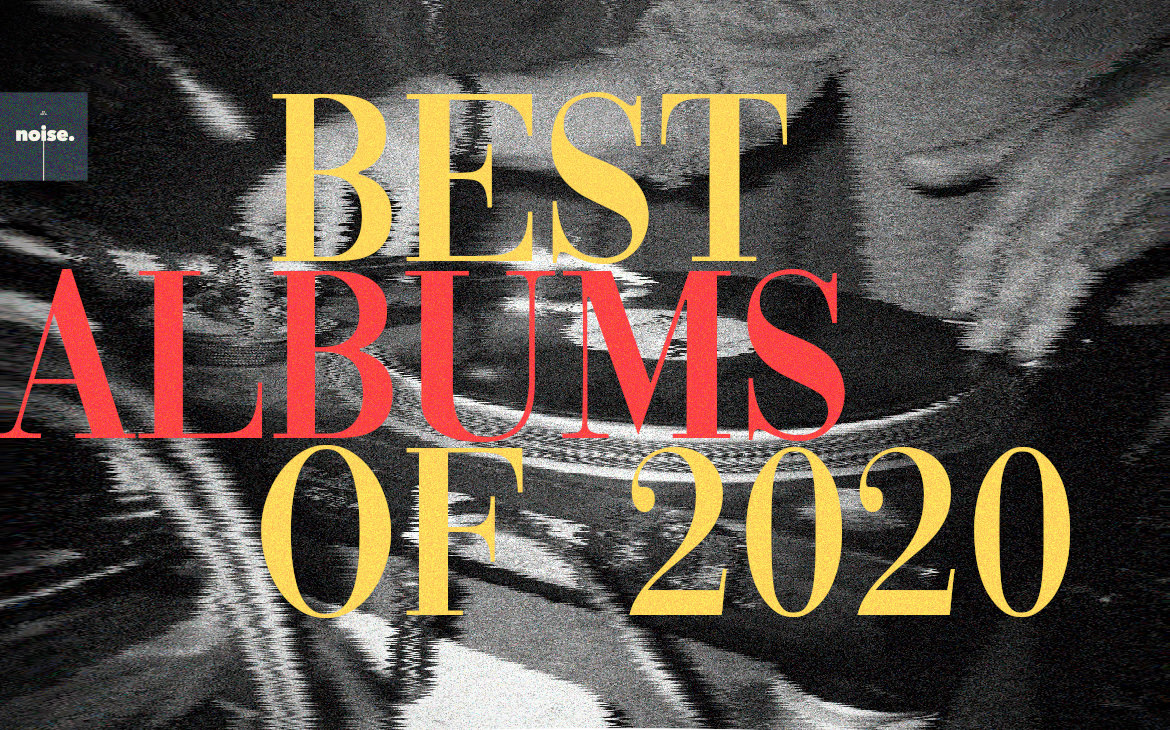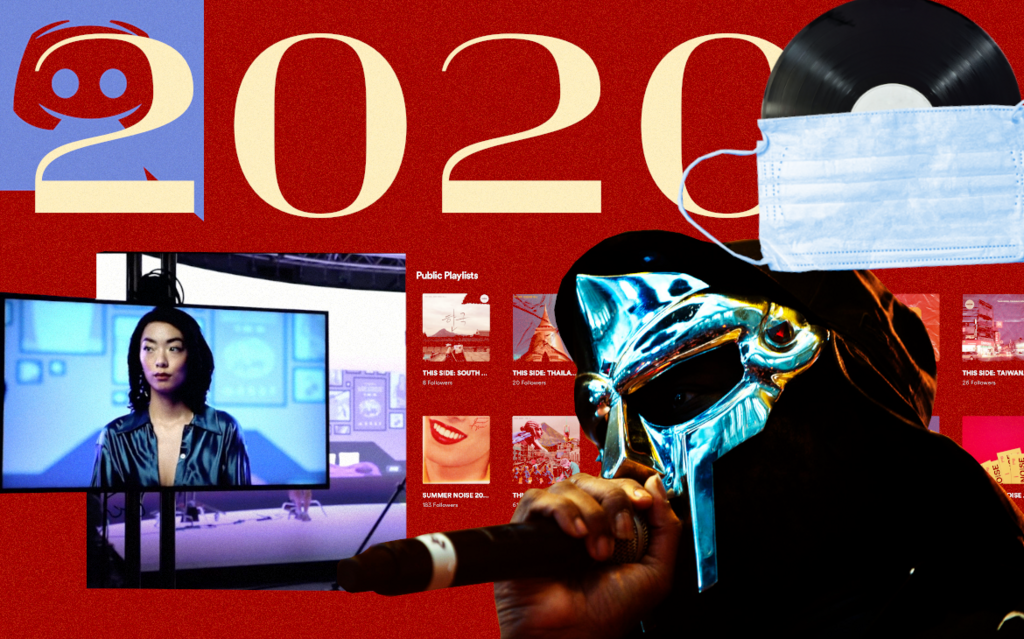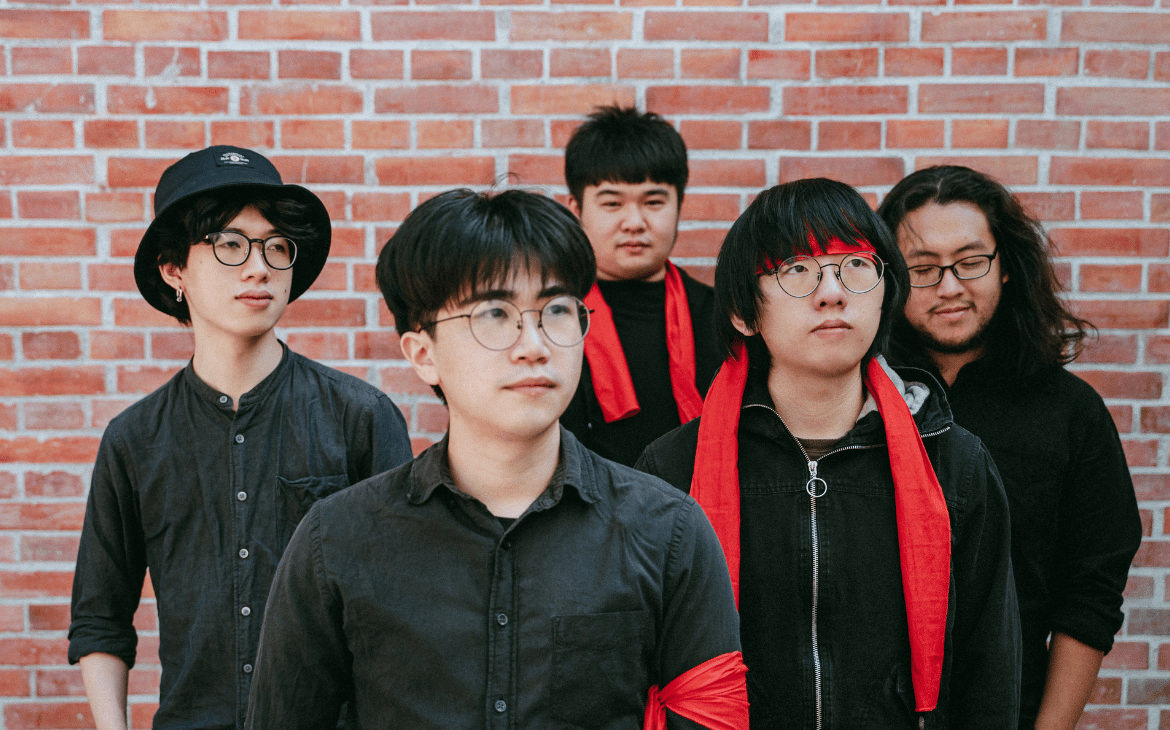In another time, we might have a bigger space to accommodate shared suffering—enough that we can still be distracted by tedium and shiny-ball headlines and move on from one day to the next. But alas, 2020 occupied that space with the full weight of uncertainty. Joy feels like a spur, ever so precious, and we cling to it knowing that nothing, even tomorrow, is guaranteed.
The music that we’ve listened to last year is not formless. It’s far from random. But mostly I think all of it was impatient, despite or because of the impermanence of it all. These are records that document the present, yearning for a future that looks very much like the past, when breathing openly is not considered fatal.
The music of 2020 is the language of frantic and listless longing, and there’s nothing like an event as catastrophic as this forcing us all to finally pay attention. — MC Galang
Hail Nothing – .gif (SG)
Existential angst, alienation, and helplessness haunt the songs of Hail Nothing, .gif’s most ambitious record to date. Their latest album largely succeeds in channeling the frustration and anxiety in the time of isolation, knocking some sense of realism in hopes of turning darkness into an opportunity to reflect and cling to hope.
The Singapore-based electronic/trip-hop duo has perfected an elegy for our washed dreams: a sound that is moody, menacing, and ready to dive headlong to the abyss, but moves with an unsettling kind of allure that you can dance to. Despite addressing real-world concerns with profound brokenness, .gif ascends towards inescapable frequencies without boundaries or shame, patting our backs for surviving a dreadful year and making it to the other end, bruised but definitely stronger than ever. — Ian Urrutia
((( 2 ))) – ((( 0 ))) (PH)
The musician known as ((( 0 ))) gives other artists working in the general chillhop genre realm a run for their money with ((( 2 ))), a world of tranquil soundscapes. In mixing that glistens and shimmers, ((( 0 )))’s voice coolly soothes and reassures, as if hushing whatever tired soul has the great fortune of encountering her. Even when she says “I don’t give a fuck about you” in “IDGAF,” she sounds totally at peace, far from dramas big and small. We’re excited for more sundrops, more precious things to catch the light. — Jam Pascual
Truth Has An Expiration Date – AHJU$$I (PH)
Some time in the early 2010s, the local scene started undergoing a kind of electronic music renaissance, one in which some of the greatest minds of our generation were pouring incredible ideas into digital audio workstations and Kaoss Pads, deftly puppeteering sine waves. Truth Has An Expiration Date by AHJU$$I is proof that this renaissance has not stopped. It has, in fact, picked up even more steam since roughly a decade ago, exploring new sonic territory along the way. Just listen to the way spins the most spirited arrangements from the most synthetic sounds, proving that even the machine houses a ghost. — Jam Pascual
LONGONE – Alex Zhang Hungtai, Tseng Kuo Hung (TW/US)
With this unlikely pairing comes a dystopian nightmare in soundtrack form. In the 6-track EP, LONGONE, Dirty Beaches’ Alex Zhang Hungtai and Sunset Rollercoaster’s Tseng Kuo Hung build a nihilist spectacle out of free-jazz abstractions, ambient moroseness, discordant noise, and dreamy atmospherics while indulging in a level of experimentation that evokes the musical score of a Lars Von Trier film. Without conforming to a set of rules or a particular discipline, the brooding record mines a tyrannical future that sees the collapse of a state. “Everything is long gone, within this floating world,” shares the liner notes of the EP. LONGONE exists in an alternate timeline that feels almost real, it’s terrifying. — Ian Urrutia
Fake It Flowers – beabadoobee (PH/UK)
Bea Kristi has got it figured out. The place to be, in terms of creative headspace at least, is exit music in ‘90s-era romcoms. Fake It Flowers does stand on revivalist feet, but it’s beabadoobee’s penchant for celebratory melodies, sparkly mixes, and timeless boy-girl flash fiction that ferried it over to critics’ and listeners’ lists alike. Pipework similarities to Leigh Nash and Harriet Wheeler notwithstanding, the young London-based songwriter is this era’s fairy-dust sprinkler: a welcome antidote to a largely dour-faced, irony-laced age in music. Fake It Flowers has the makings of a minor Static and Silence, and if you knew the currency the latter held two, three decades back, you’d know I don’t mean the praise lightly. — Aldus Santos
Moonstruck – Beetleflux (ID)
Moonstruck is short and sweet, but leaves you gasping for more. The album excels in squishing together some of the most endearing things that I miss about early 2010s indie rock/pop: jangly guitar leads, reverb-laden vocals sprinkled with moments of fragile melancholy and restraint, and a writerly eloquence that touches on adolescent uncertainty and angst. Beetleflux seemingly have no greater ambition than to master their pop songcraft with subtle variations on the theme. In Moonstruck, carefree simplicity abound: no intricate arrangements that challenge the form, no obscure references that encapsulate a time capsule. It’s pure pop confection that is easy to feel at home with. — Ian Urrutia
Deafening Earthen Tones – Calix (PH)
Listening to Deafening Earthen Tones is like coming upon an artist’s private sketchbook of studies. In this record you’ll find a clear display of technique and ideas that, though they may not have found a home in previous records, still deserved a place somewhere. Calix has an aggressive and heavy style that occasionally borders on horrorcore, so it’s nice to hear him change it up here, with beats and flows that are a little more subdued, yet still incredibly potent. — Jam Pascual
Revenge – Dana Blaze (PH)
Like some vengeful desert spirit haunting sand dunes to terminate wandering gunslingers, Dana Blaze haunts Revenge. A delicate voice is the fine thread running through every trick. Revenge also avoids the trap of reducing itself to cookie-cutter whisper-y folk by introducing interesting arrangements. Intro track “watch u burn,” for example, has unexpected semi-orchestral swells, starting off soft before finishing in big waves. This is an album fortified by wine and iron. — Jam Pascual
第七作品集『無題』– Downy (JP)
Moody, dense, and beautifully mixed, Downy’s 第七作品集『無題』straddles worlds and evades taxonomy. It’s very much a studio record, and by that I mean in contrast to records made playing physical instruments. In short, in 第七作品集『無題, Downy plays studios as opposed to guitars and drums and synths; it is an album informed by sound design as much as it is by composition, and in its polymath tendencies—Massive Attack trip-hop on one song, Shellac hardcore rhythms the next, occasional textures reminiscent of Autechre—we see not just a creative force to be reckoned with but also a formidable chronicler of musical milestones. — Aldus Santos
ena mori – Ena Mori (PH)
2020 was chock-full of S tier pop records, but I like to think of Ena Mori’s debut album as the first falling domino to set off that miraculous chain reaction. From Ena Mori’s lively lilt and lyricism to Tim Marquez’s thoughtful production, this album is the kind of thing that sets an example. Think of it as gourmet bubblegum—exquisite in how catchy and fun it is. “Safe Zone” is a certified bop. — Jam Pascual
LOVETHEISM – HARU NEMURI (JP)
If Japanese pop and rock is a style you’re unfamiliar with (save for perhaps the thousands of times you’ve looped Mariya Takeuchi or Pizzicato Five), there is probably no better gateway than HARU NEMURI, who has been pulling absolutely insane stuff since 2018’s kick in the world, and has only been growing more powerful and skilled since. On LOVETHEISM, spoken word cadences maneuver the sharp turns and scattered peaks of highly chaotic arrangements. LOVETHEISM is legitimately groundbreaking, and musicians of all genre persuasions could stand to learn a thing or two from Nemuri. — Jam Pascual
Bildungsroman – Hiperson (CN)
Hiperson’s Bildungsroman is a galloping record that blazes through post-punk, rock, spoken word poetry, and traditional folk music to tell compelling, personal stories presented as an epic coming-of-age tale. In this regard, the album format lends itself completely to Bildungsroman, the title itself fully embracing its literary origins. It’s lyrical, modernist poetry—each song spun elaborately (but not gimmicky), immersive, and rich in detail—about self-identity shaped by historical narratives and more importantly, refreshing self-agency. — MC Galang
Aperture – Hyph11e (CN)
This record by Shanghai-based artist Hyph11e is, in a word, unforgiving. At its most severe and most extreme (“Knots,” “Baily’s Beads,” “Shatter,” and “Get Out From Under”), it spares us from theatrics and plunges right into dizzying footwork, hard techno, and hyperventilating drum and bass. It’s club music the same way Shygirl’s ALIAS, COUCOU CHLOE’s ERIKA JANE, and the SOPHIE-featuring “Metal” from Jimmy Edgar’s fantastic double single. Hyph11e’s genius, really, is how she manipulates sound and silence without being overbearing or claustrophobic. Aperture very much feels like a living organism tunneling out of darkness. It wants out, and it wants it now. — MC Galang
Sparkle – iri (JP)
The grief of last year seems to have completely missed the space that Sparkle, the latest record from Japanese singer-songwriter iri, inhabits musically. It refuses to conform to a palpable collective sadness, the immeasurably joyful work that it is. It has an exterior feel to it, as if we’re tagging along with iri and roaming the streets of Japan: full of youth, weightless, uninhibited—a pre-pandemic luxury. It transcends language, one where lyrics are secondary. It’s pop that 2020 desperately deserved. — MC Galang
Waiting for the End to Start – The Itchyworms (PH)
They didn’t set out to make a “quarantine record,” but the ‘Worms guys, like the rest of us, were left with no choice. That handicap rendered them unable to practice their time-honored, style-bible tricks, if you will, and—save for the largely live-sounding “Armageddon Blues”—the resulting songs couldn’t be farther away from vintage Jugueta, Nicolas, Singson, and Yu. You sense it in the doo-wop reimagining of “Give Me a Love Song,” in the ‘80s-era hair-rocker “InstruMental,” in the showtune hat-tip that is “Burning the Bridges.” Waiting for the End to Start, I surmise, is the sound of the band in a vacuum-sealed capsule, hands tied behind their backs. Yet they could still juggle. — Aldus Santos
Into Midnight – LONER (PH)
LONER’s Into Midnight is as nocturnal listening as it gets. In lieu of (many still closed—some, permanently) dance spaces, the four-track EP haunts intimate, more secluded rooms, a sense of desire and longing thick in the air: to connect on a personal level (“Turn It Up”) and communally (“In the Summer”) and to break free from isolation and lose himself in the groove (“Liwanag sa Gabi”, “Pagbabago”) in a singular way that only house music can—one that invites its participants to let go of their bearings in collective surrender. — MC Galang
Volumes – Oh, Flamingo! (PH)
I only have the deepest admiration for Oh, Flamingo! live but have to confess a feeling of mild betrayal in their recorded output, which I feel doesn’t quite capture the band’s vitality. Well, until now. It’s perhaps too early to say, but with Volumes, Oh, Flam makes their Pepper—or their Dark Side, depending on which epochal release you typically rally behind—and I can only giggle in rapt anticipation at what they’re capable of at this point. I still mean every word I wrote on it when it first came out—”Brash but studied. Slapdash in spirit but precise in execution. Impulsive but with a maddening purpose.”—but have only grown to appreciate it more. An important Filipino band from any era. You better believe it. — Aldus Santos
Collected Fiction – Pamphleteer (PH)
On Pamphleteer’s debut album, Collected Fiction, the stories that shine brighter are the ones peddled in the dark. Not necessarily aiming for authenticity or volume, but it’s completely satisfying to hear both Aldus Santos and Dee Cruz trade verses about disappearing in the night with your partner in crime, shattering moral ascendency because it’s a sweet taste that lingers for too long like a fragrant scent, and as Cruz shares in an interview with Bandwagon Asia, exposing “mature people” who deliberately make “bad decisions.”
There’s noir-like quality in its essence and purpose, where characters and monsters live in the same breadth, occupying the same body, the same soul. The central figure in Pamphleteer’s literary universe is also a person capable of loving and being unloved, hurting and being hurt. It’s us, in the time of desperation, war, and unrest; it’s someone special to us, flawed and trapped under incredible circumstances, whom we want to save and protect from harm. Astonishingly, as Santos and Cruz sing about the personas portrayed, they’re visibly committed to the excess that comes from this staggering push-and-pull dynamics; their vocals shifting from wraithlike to maddeningly infatuated, from showing no signs of remorse to grappling with the fear of being caught. They’re reliable actors with egos as big as ours, and with complicated motivations that drive them to the edge of sanity. — Ian Urrutia
How Can I – Park Hye Jin (KR)
Park Hye Jin’s How Can I celebrates the simple, unadulterated pleasures of isolation and intimacy. Think of it as an escapist reverie, a laid-back groove that lends itself some semblance of a packed club. But even as the world takes a deep, gloomy turn into nightmarish present, the 6-track release radiates with communal energy and unspoken, human connections. It’s one of the few minimalist dance music releases this year that feel joyously liberating even in contained spaces, proudly waving its infectiousness around the corner.— Ian Urrutia
Pink – RAY (JP)
I’m pretty humorless when it comes to “idol” music and culture, especially since much of it is anchored on theater and artifice. Despite this—perhaps more precisely because of it—RAY’s Pink struck me beyond being a curious sampler from the discipline. It is no more a frenzied collection of shoegaze-and-J-pop juxtapositions than an inspired group of well-crafted singles, full stop. The discordant “The End of the World with You” is tops, and so is the doom-laden “Blue Monday.” Pink is an utter joy to listen to, and an even greater joy to take apart. — Aldus Santos
SAWAYAMA – Rina Sawayama (UK/JP)
“Millennium pop” might be the most agreed upon stylistic designation for SAWAYAMA, but to be honest, this record really runs the genre gamut. There’s the unabashed rock arena of production of “Who’s Gonna Save U Now?” and “Dynasty;” the put-your-lighters-up, Grade A cheese of “Chosen Family;” the New Jack Swing on “Love Me For Me” and the nu metal of “STFU”—hell, even the deluxe edition’s remixes all bring something new to the table. For some reason this curated amalgamation of styles works to produce the singular vibe of Rina Sawayama. To think this all started with her 2017 EP Rina, an alt-pop critique of the digital condition, where the Japanese-British singer-songwriter interrogates identity, and its tendency to fracture. Now look at Sawayama, the picture complete, a pop legend somehow both fully realized and just getting started. — Jam Pascual
Tape Ends – The Steve McQueens (SG)
The Steve McQueens’ Tape Ends EP is a staggering work of compositional composure. It challenges what songs are supposed to be and do and accomplish; in the heady detours of “Cosmic Terrain 2.0” and “Never Not,” for instance, the nu-jazz quartet proves that songs need not be animals of resolution and closure. Skeletal ostinatos pervade the record still, but in the hands of this insanely talented bunch, they’re never walks in the park. A longer album is reportedly in the works for next year, so color me inordinately thrilled. — Aldus Santos
Culture Cow – Tarsius (PH)
Far from playing it safe, Tarsius’ Culture Cow disrupts and challenges everything essential about electronic music for something that is shamanic yet capable of resonating on a wider scale. Devoid of metropolitan polish and cinematic excess, it’s an album that bursts with ripening innovation: its forays into ambient, Krautrock, techno, IDM, experimental, and house music presented not as a collage, but as a retro-futurist machine groove waiting to be discovered. For throwing off those shackles and committing to an incredible craftsmanship that isn’t restricted to a specific movement or buzz-worthy sound, Culture Cow serves as a defining moment for Tarsius’ decade-old run. — Ian Urrutia
Ultimo Fantasma – Tito Uncle & Scarly (PH)
There are no shenanigans in rapper Tito Uncle and rapper-producer Scarly’s collaborative debut, Ultimo Fantasma, a formidable project that worships at the altar of MF DOOM (Rest In Power). The self-released EP recontextualizes the glory and pitfalls of fame and how anonymity mitigates both through their renewed fascination of wrestling, particularly of larger-than-life luchadors. The EP examines—and often weaponizes—capitalist exploitations (“Ferdinand,” “Mansion X”), the chronic restlessness and isolation that fuels self-medicated coping mechanisms (“Shadaloo”), and the delicate line that straddles between mortality and invincibility (“DND” which, side note, repurposes one of the worst bars of Jay-Z’s career).
The brevity of Ultimo Fantasma facilitates a curt, but interesting, introduction. It’s certainly not enough to dig deep into the rabbit hole of its nihilistic tendencies, but it’s certainly more accessible than I anticipated—one of the more exciting rap debuts I listened to this year so far.— MC Galang
10 – tricot (JP)
Is it math rock with J-pop elements? J-pop that happens to be highly technical? Or are we limiting ourselves to a dichotomy failing to recognize all the rock and funk (and even rapping!) that goes into something as eclectic and dynamic as 10? All I know is that when it comes to tricot, everything has a purpose, and there’s no such thing as a wasted note. — Jam Pascual
Eyes Wide Open – TWICE (KR)
TWICE marks their return with a sparkly album whose confidence remains unmatched. The exquisitely produced Eyes Wide Open never runs out of bombastic summer anthems on its arsenal. From the stomping disco of “I Can’t Stop Me” to the infectious city pop revival of “Up No More,” expect nothing less from the South Korean girl group. In their own sassy, sophisticated realm, TWICE has found a way to scale up pop music with glorious maximalism—clearly outpacing their contemporaries in the game this year by a mile. — Ian Urrutia







